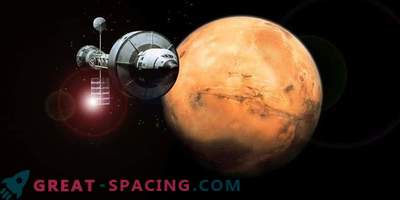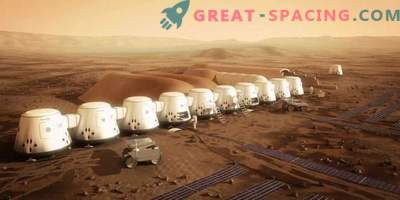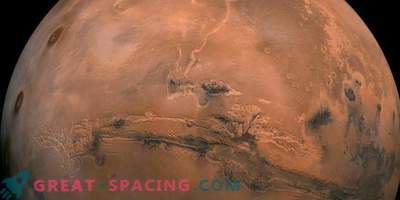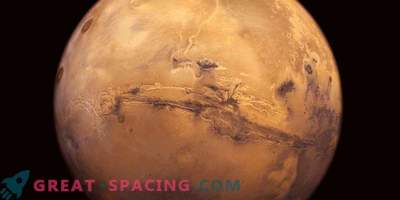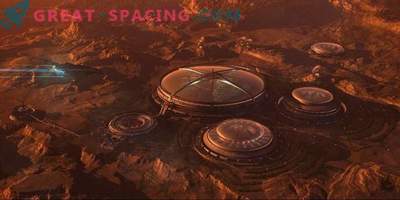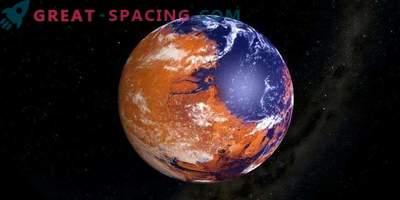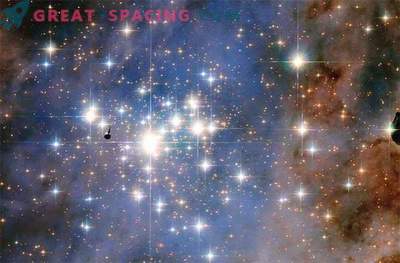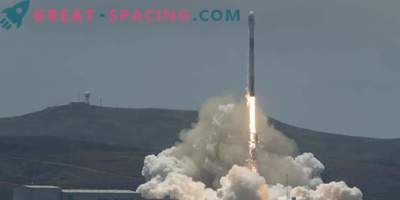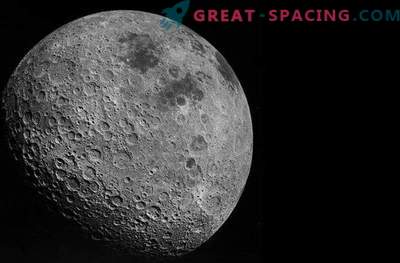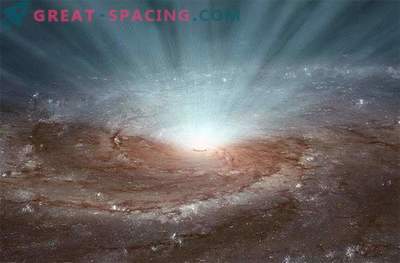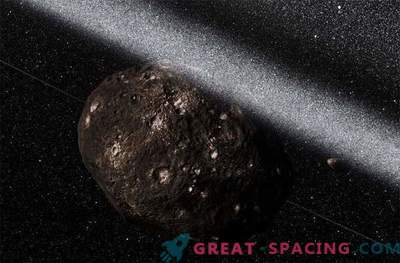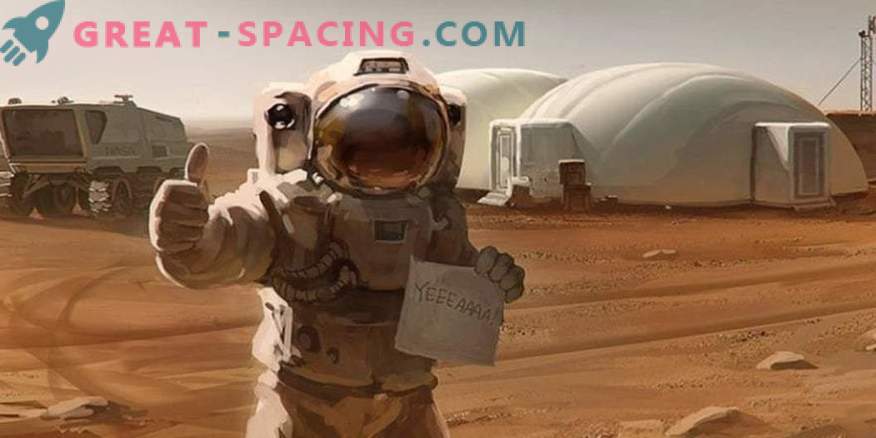
Earthlings can be called real lucky ones. We have a beautiful planet with rich nature, a large supply of water, natural resources, air, comfortable gravity and pressure. Then why spend the money and go to colonize some dangerous radiation desert in the form of a fourth planet from the sun?
Today we will talk about the importance of Mars, and why space agencies are trying so hard to populate it, agreeing on huge expenses and potential human sacrifices.
Let's start with the colonization factor itself. Why fly somewhere if we literally live in paradise in the middle of the cosmic desert? There are two main reasons: necessity and interest. Necessity is based on the fact that our planet will not exist forever. All these luxurious green fields, deep oceans and noisy earthlings - only a temporary phenomenon that could disappear in the near future.
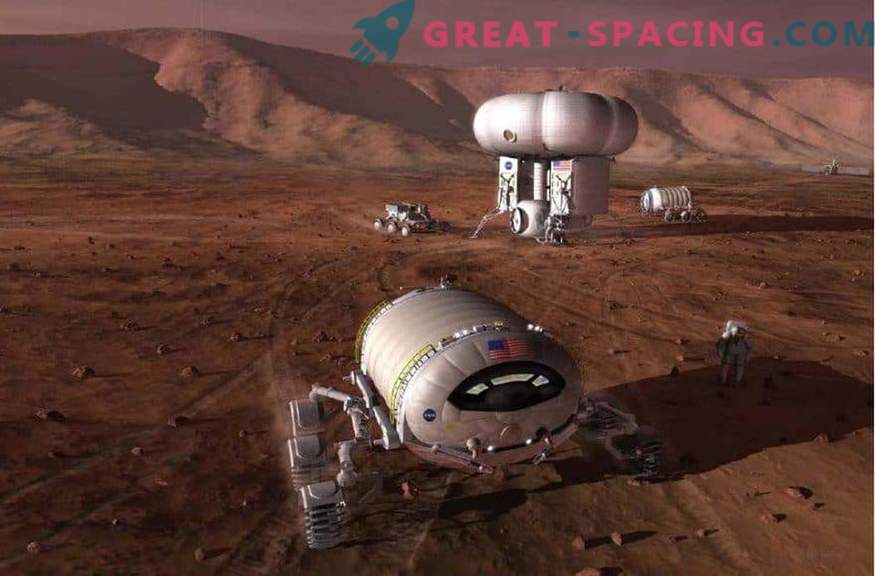
An artistic interpretation of NASA's manned Mars mission
There are several threats to the Earth:
- cosmic “sudden”. NASA representatives track dangerous near-Earth asteroids and even develop technologies to destroy them or change the orbit. However, we are not insured against the risk that one of the large space rocks crashes into the Earth. In the distant past, the collision created the moon. About 65 million years ago, an asteroid led to the death of dinosaurs. What prevents this from happening again?
- the cosmic “inevitable”. Next to us is not only the source of life, but also a time bomb. More precisely, it detonates after 5 billion years. This is about our beloved Sun, preparing to evolve and grow in size. This will lead to the absorption of the Earth or it will just fry us. The logical way out is to escape as far as possible.
- human stupidity. Despite all their intelligence and development, people remain primitive creatures (no offense), acting at the level of instincts. And it becomes terrifying that nuclear warheads have come to the place of the stick and sword. History teaches that even a small conflict can grow into a massive confrontation that absorbs the entire planet. The modern war will end much faster, but there will be nobody to talk about it.
- human fertility. About 7.6 billion people roam the planet. Statistics says that by 2100 this population will increase to 11 billion people and will continue to grow rapidly. It is not difficult to imagine that once there is not enough room for everyone. The struggle for resources and territories will begin. Of course, you can follow the classic scenarios from films and books, where strict birth control is introduced, or repeat the actions from the movie “The Secret of the 7 Sisters”. But it sounds somehow inhuman.
All these factors suggest that humanity needs a second home, a spare haven, or at least a saving circle in space, where it will be possible to move if the Earth goes to the bottom. These are all compelled reasons. But there remains also a research interest and dreams that force us to spread through space and develop new territories.
Why is Mars?
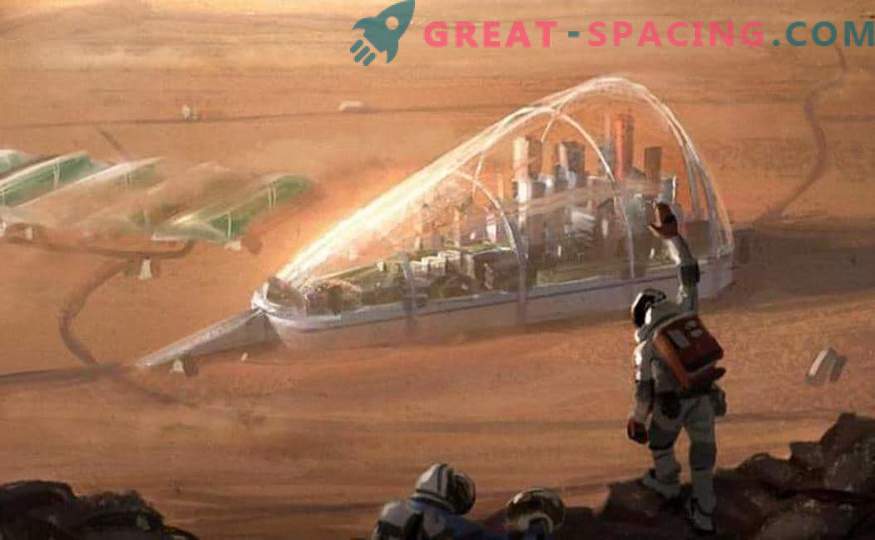
Artistic interpretation of a possible colony on Mars that the United Arab Emirates is going to create in 2117
Scientists agree that the Moon will become only an intermediate point between the Earth and the exploration of other planets. We need a world that is closest in its characteristics to earthly ones. The red planet, despite its shortcomings, is considered a promising object for colonization:
- Martian days resemble earthly days (24 hours 39 minutes and 35 seconds).
- there is a small atmospheric layer (0.7% of the earth's).
- a similar tilt axis (Martian 25.19 °, and Earth - 23.44 °), allowing to observe the change of seasons.
- less gravity simplifies the process of launching rockets into deep space.
- there are deposits of water in the form of ice, as well as a theoretical liquid lake under the ice cap.
- despite the radioactivity, the Martian soil resembles that of the earth, so that in the long run one can learn to grow vegetation.
The ideal option would be to create a second autonomous planet capable of providing itself with everything necessary on the spot. Mars can become a second home, a scientific and research base, as well as a rocket station, from which it is much easier and cheaper to send rockets into space. In addition, the Red Planet will play the role of an intermediate point between the colonization of solar planets and the flight beyond the solar system.
Of course, there will be many problems in the process of colonization. First you need to create favorable conditions for life, ensure the safety of the colonists and create an autonomous system. But political problems, division of the territory and other human factors will surely follow. Let's hope that by the time of the appearance of the Martian colony, people will learn to peacefully solve problems and not unleash a war for the seizure of another planet.
